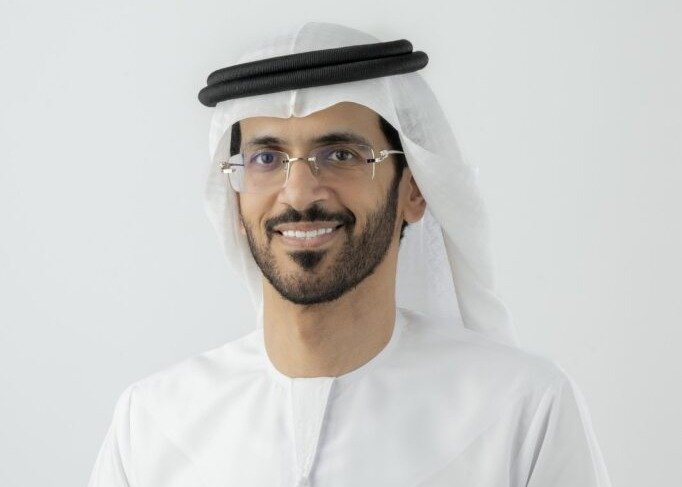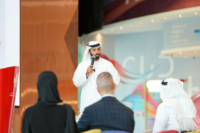From personalising learning experiences to supporting educators, Abu Dhabi is harnessing AI to transform education. Dr. Ahmed Al Shoeibi, Executive Director, Higher Education Sector, Abu Dhabi Department of Education and Knowledge (ADEK), shares how embracing AI today is key to empowering teachers and shaping the future of learning
As a teacher, imagine having more time to engage with your students, personalise feedback and focus on what truly matters — building meaningful connections. Artificial Intelligence (AI) is making this a reality, not by replacing teachers but by empowering them.
At the heart of effective learning lies human connection. Teachers bring empathy, mentorship, and insight, which are qualities that no machine can replicate. Automating time-consuming administrative tasks such as lesson planning and grading allows educators to focus on what matters most: fostering deeper relationships with their students.
Personalising learning
Think of a typical teaching cycle — preparing lesson plans, delivering content, assessing students and providing feedback. AI can now enhance and accelerate each stage and support teachers’ unique needs at every step.
When I used to teach my university students, I tried to use creativity to engage my students. Whether by creating visuals to illustrate theoretical concepts or using light-hearted jokes to break the ice, I found that engagement transformed the learning experience.
AI can help teachers design dynamic, engaging lesson content that truly connects with students. This ensures that no learner is left behind.
Additionally, various tools can seamlessly and efficiently support tests, evaluation and generate feedback tailored to individual students, saving time and enhancing outcomes.
Beyond the classroom, AI also promotes lifelong learning by equipping students with the skills needed for rapidly evolving industries. It brings significant value to the learning experience thanks to its capabilities to analyse vast amounts of data from industry trends, job postings, research papers and economic forecasts to interpret complex information and predict the skills that will be in demand in the future.
This capability is transformative in preparing students for future job markets. AI can adapt learning pathways to incorporate these emerging skills into the curriculum, ensuring students are not only keeping pace but are future-ready.
AI in the hands of teachers
At ADEK, we are continuously working to stay at the forefront of digital transformation, in line with Abu Dhabi’s vision of leveraging AI to unlock new opportunities. One such initiative has been the AI for Teachers programme, which equips educators to integrate AI tools into their teaching practices, enhancing lesson planning, assessments, classroom activities and personalised feedback. The programme’s structured approach ensures that educators not only gain familiarity with AI tools but also apply them in ways that lead to impactful learning.
As part of the pre-training phase of the programme, teachers assess their familiarity with AI tools and upload their own teaching materials. This ensures the AI applications are directly relevant to their unique needs.
During in-person training, educators explore AI’s potential and apply it to their teaching materials, guided by peer discussions and mentorship from experts.
The capstone project gives teachers the chance to work in peer groups to implement AI and share their results, fostering collaboration and continuous improvement.
This collaborative, immersive model fosters knowledge-sharing and helps teachers refine their strategies.
Driving AI with partnerships
We believe that if we want to go far, we need to go together. That’s why we work with the entire education ecosystem to advance AI in classrooms, educators and students alike.
The UAE’s commitment to AI education is further reflected in its inclusion of AI learning objectives in the K-12 curriculum under the Technology Subject Framework. UNESCO’s 2022 report ‘K-12 AI Curricula: A Mapping of Government-Endorsed AI Curricula’ highlights this as a benchmark for global leadership in education innovation.
As part of the effort, we have hosted AI bootcamps, including a range of STEM-focused programmes such as AI for a Sustainable Future by Khalifa University, AI Discovery Programme by Mohamed bin Zayed University of Artificial Intelligence (MBZUAI), Prompt Engineering and Data Science & AI Training by UAE University, Creating with AI by NYU Abu Dhabi, AI for Tomorrow by 42 Abu Dhabi and the AI Winter Camp by Abu Dhabi University.
We are also raising awareness about AI’s potential through initiatives such as the AI Summer Series, which explore Generative AI and Prompt Engineering in depth. These programmes immerse students in cutting-edge tools and concepts, inspiring them to become future leaders in technology.
UAE’s strategic advancements
Our investment in AI is already yielding results. The UAE team recently won a silver medal at the International Olympiad in Artificial Intelligence held in Bulgaria. ADEK arranged mentoring for the four students through our partner, MBZUAI, providing them with the guidance and support needed to excel at the competition.
AI is not just a tool; it is a conduit for innovation. By harnessing its potential, schools can prepare students for challenges we cannot yet envision.
The UAE Strategy for Artificial Intelligence 2031 underscores this commitment by aiming to position the country as a global AI leader across multiple sectors, including education. UNESCO’s 2024 report ‘AI Competency Framework for Students’ notes that only 15 countries had included AI learning objectives in their national curricula by 2022, emphasising how the UAE remains ahead of global trends in AI education.
For this vision to succeed, parents, educators and policymakers must champion the integration of AI in education. Teachers need resources and training to adopt AI confidently, and students must have access to transformative learning experiences.
AI is not the future; it is the present. Embracing its potential today is key to creating a brighter, more resilient future for education and for generations to come.








